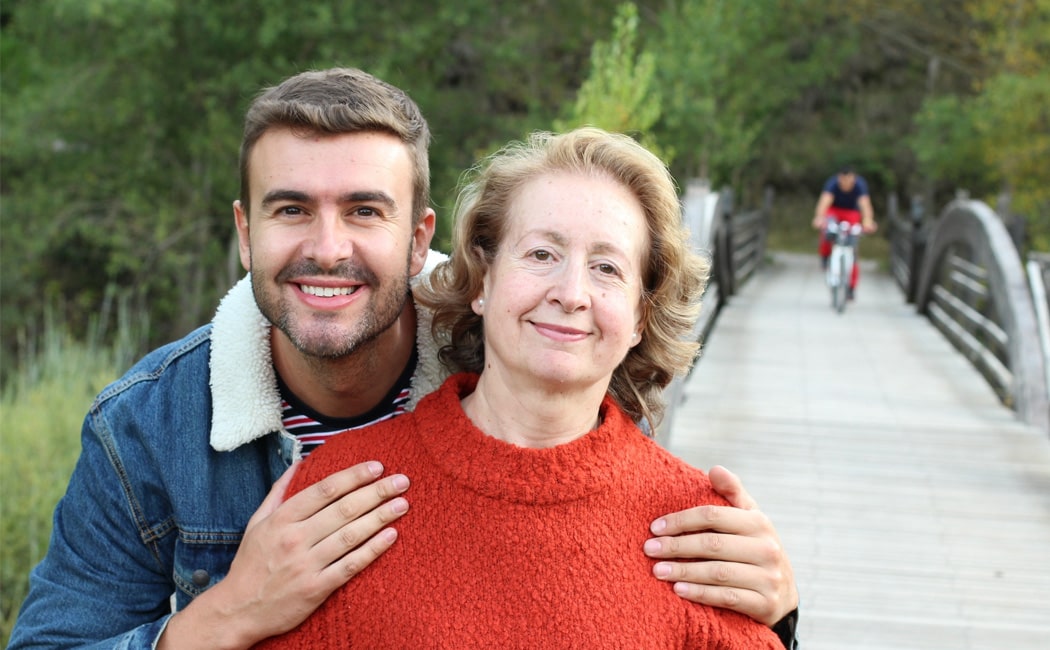Effects of Drug Abuse on Family
Someone who chronically relapses has trouble staying sober. They continuously fall back into their addiction even if they are trying with all of their willpower to stay away from drugs and alcohol.
They are sick with a chronic disease. If left untreated, they will eventually relapse or their addiction will continue to spiral out of control.
But they are not the only ones who suffer.
Addiction is a Family Disease
Angie Buja, who has worked at Burning Tree Ranch’s Family Program for 10 years, said addiction and alcoholism is a family disease. Buja has worked with more than 1,000 families over the last decade.
“It affects all members of the family,” she said. “The individual doesn’t ask to have the disease of alcoholism and the families don’t ask to love somebody with the disease of addiction.”
How are families affected by chronic relapse?
Chronic Relapse Drains Finances
People who suffer from chronic relapse most likely go in and out of treatment.
Often the family has hopes that the next treatment center will be the answer. They believe the next 30 to 90 day rehab will be “different this time.”
With chronic relapsers, that hope is usually dashed by another spree.
Families waste tens if not hundreds of thousands of dollars trying to get their children or loved ones help, but to no avail.
This is a chronic problem. The family continues to invest in 30, 60 and 90-day and other extended care treatment until the right solution is found. Sometimes however, a solution is not found at all.
Drug addicts and alcoholics are also in and out of rehab because of the nature of their substance use disorders.
Other chronic diseases like hypertension or diabetes — if left untreated after remission — can go into relapse, especially if the disease is severe. According to the National Institute of Drug Abuse, addiction sees the same level of relapse as common chronic diseases.*
Constant Worry
The effects of substance abuse on family goes far beyond financial woes.
Parents who have children addicted to drugs or alcohol spend many sleepless nights worrying about their kids.
Families can become angry that things have not changed. At the same time, they cannot shake the constant feeling of impending doom.
“They are so anxiety ridden,” said Dawn Wilson, director of Transitional Services for Burning Tree Ranch. “Oftentimes families are just waiting for the other shoe to drop, whether it’s jail, a financial problem or overdosing and ending up in the hospital.”
By the time it is apparent that their children are chronic relapsers, parents know what their addicted child is doing without the power to solve their problem.
All they can do is worry.
Don’t let addiction control your family.

Burning Tree Programs helps families overcome addiction. We’ve been helping families since 1999. Let our admission experts help your family find the best path to recovery.
877-389-0500
Siblings Feel Resentful Towards Family
Siblings can be in the middle of or witness family fights with an addicted sibling. They see their parents constantly worry about their brother or sister and see the peril they are in.
Research shows that siblings of drug addicts and alcoholics have a difficult time trusting others. They often expect the worst and are resentful at their parents for spending so much of their attention on the sibling who is addicted to drugs or alcohol.*
“Siblings of a person with substance abuse disorder feel neglected when the addiction takes the priority over choir practice or sports events,” Wilson said. “These kids feel like they did everything right while their parents are constantly focused on their other child.”
Research and experience show that these siblings experience deep emotional wounds and relationship problems within the family dynamic. The negative impacts adolescent siblings experienced — anxiety, trauma sadness, betrayal, and grief — continue to affect them as adults.
Desire and Need to Fix It For Their Kids
Many parents who work with Burning Tree Ranch have deep resentment at themselves for “not being a good mom or dad.”
Families want nothing more than to help their son or daughter get better and to stay that way. Some family members want to be in the role of the hero.
But they simply cannot cure their son or daughter’s disease no matter how hard they try.
Alcoholics Anonymous states that “frothy emotional appeal seldom suffices.” This means that emotion, responsibility, people or consequence have little to no control over addiction.
There is Help for Family Members of Drug Addicts
Addiction affects the whole family. If your loved one has tried many drug rehabs, long term treatment might be your child’s best solution.
Burning Tree has an extensive Family Program that helps families of addicts and chronic relapsers with substance abuse problems.
Burning Tree Programs offers three other 12 Step programs that teach addiction and mindfulness training, helps women with addiction and trauma, and helps younger adults stay sober in Arizona.
Burning Tree Ranch, a long term drug and alcohol treatment center outside of Dallas, has more experience than any other treatment center in Texas with long term care. It’s among a small handful of treatment centers in the United States that does true long-term residential treatment.
As a substance abuse treatment facility, Burning Tree Ranch has helped families and chronic relapsers find long term recovery since 1999.
References
“How effective is drug addiction treatment?,” National Institute of Drug Abuse,” January 2018, accessed March 10, 2020, https://www.drugabuse.gov/publications/principles-drug-addiction-treatment-research-based-guide-third-edition/frequently-asked-questions/how-effective-drug-addiction-treatment
*Clarfield, Cynthia E., “You’re Doing Fine, Right?”: Adolescent Siblings of Substance Abusers” (2017). Dissertations & Theses. 379. https://aura.antioch.edu/etds/379
*Center for Substance Abuse Treatment. Substance Abuse Treatment and Family Therapy. Rockville (MD): Substance Abuse and Mental Health Services Administration (US); 2004. https://www.ncbi.nlm.nih.gov/books/NBK64258/





